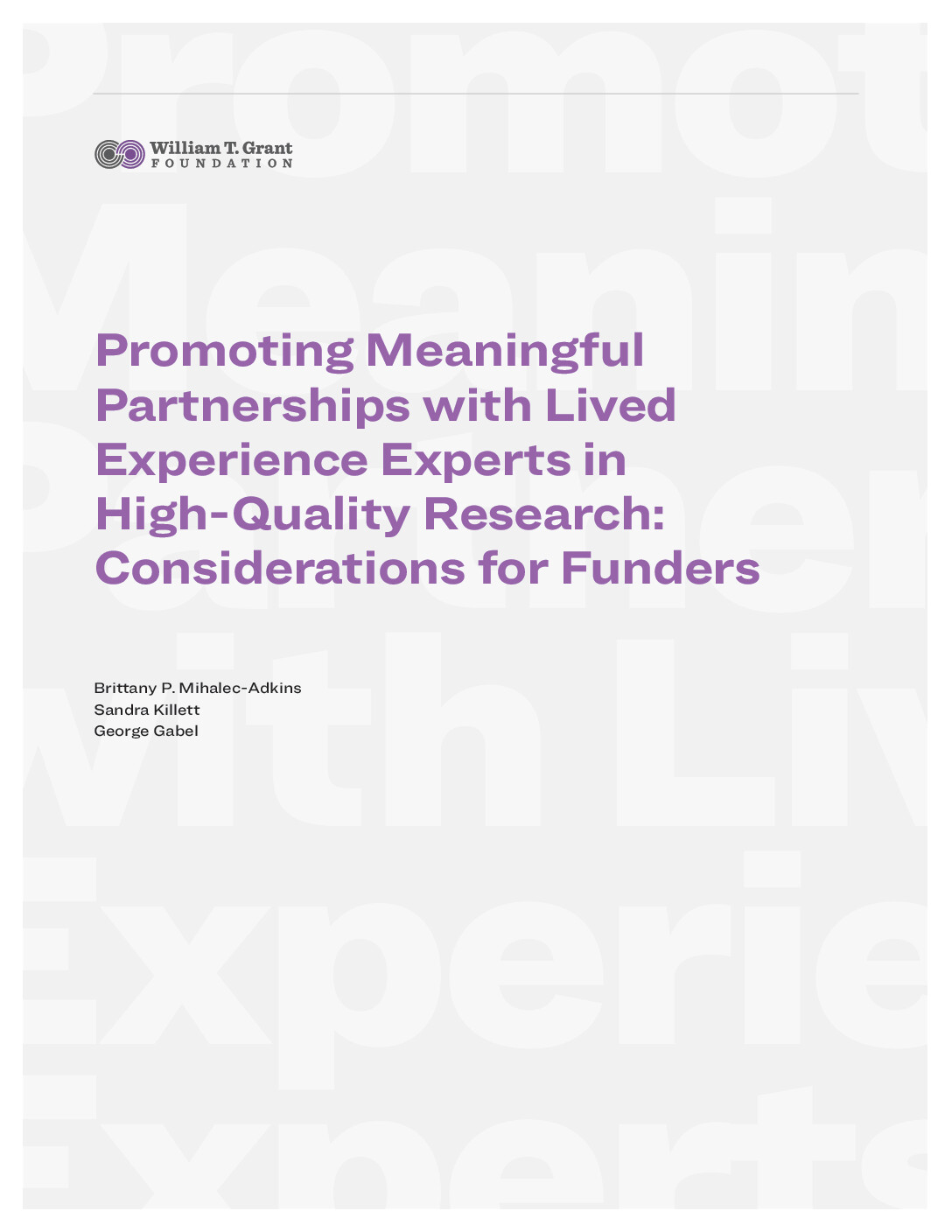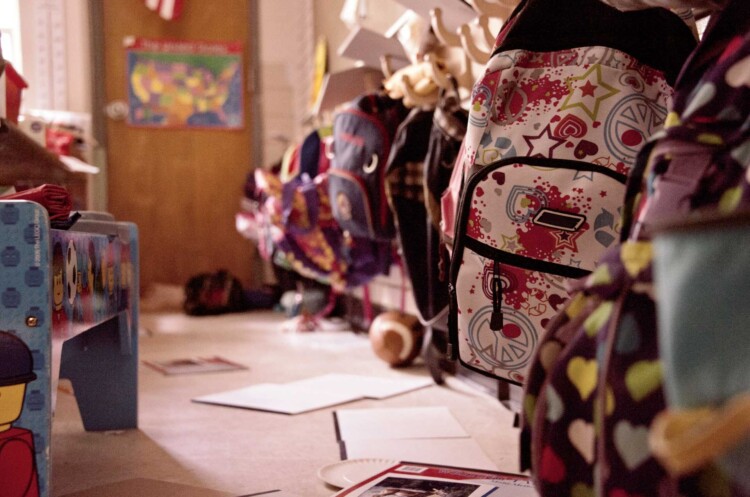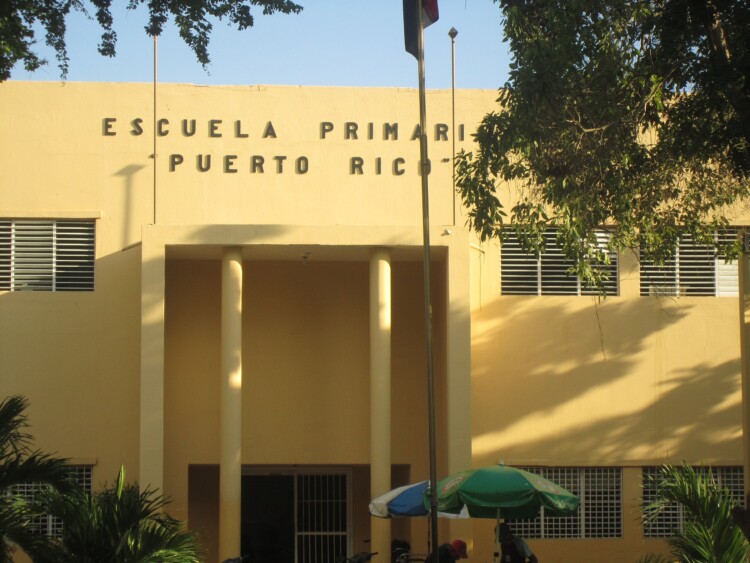Research is core to the William T. Grant Foundation, as is the use of the knowledge that results from high-quality, community-based empirical investigations. We are committed to funding the study of 1) programs, policies, and practices to reduce inequalities in the lives of young people and 2) ways to improve how research evidence is produced for and used in policy and practice so that it benefits of young people. Learning from the research we have supported in both these areas, we see value in meaningfully including varied types of expertise in the design, conduct, interpretation, and application of research studies.
For the past several years, the Annie E. Casey Foundation, Casey Family Programs, and the William T. Grant Foundation have funded and worked in close partnership with more than 50 individuals representing a broad array of experts, stakeholders, and people with lived experience to develop a 21st Century Research Agenda for a Child and Family Well-Being System, which comprises the most pressing research gaps that span each aspect of child welfare system involvement, including: community-based family support and maltreatment prevention, child protective services involvement and prevention of family separation, and out-of-home care and post-permanency services. Partnering organizations include Black Administrators in Child Welfare (BACW), the National Indian Child Welfare Association (NICWA), Child Trends Hispanic Institute, the American Public Human Services Association (APHSA), the Child Welfare League of America (CWLA), Social Current, and the American Academy of Social Work and Social Welfare (AASWSW).
We see value in meaningfully including varied types of expertise in the design, conduct, interpretation, and application of research studies.
As part of this effort, a team of six lived experience experts (i.e., individuals with lived experience with the child welfare system—including two young adults with foster care histories, two birth parents, a grandparent/kinship caregiver, and a foster caregiver) have been equal partners in project leadership, serving in various roles related to project development and dissemination, and serving as full voting members of the project’s Steering Committee. This type of sustained collaboration is essential for forward movement.
Given the unprecedented nature and scale of this partnership, we commissioned a brief describing the partnership process and outlining guidance for funders in supporting meaningful partnerships between researchers and lived experience stakeholders. The brief and checklist share recommendations from lived experience experts on how they experience research, and recommendations for researchers and funders about who to proceed with respect and rigor.









